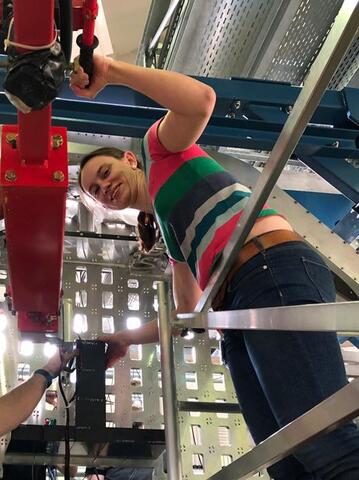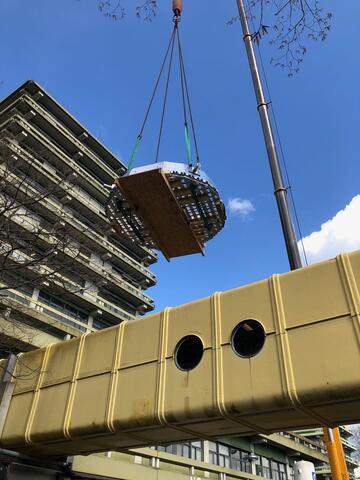Workshop „Physics Opportunities with Proton Beams at SIS100” was held in Wuppertal
PANDA meetings
04/03-08/03 2024 CM 24/1 in Münster
24/06-28/06 2024 CM 24/2 at GSI
25/06-26/06 2024 FEE/DAQ Workshop
04/11-06/11 2024 CM 24/3 at GSI
05/03-07/03 2025 WS at GSI
16/06-20/06 2025 CM 25 in Uppsala
Online cluster-finding algorithms for the PANDA electromagnetic calorimeter
Marcel Tiemens
TH-PHD-2017-009.pdf
(59.75 MB)
To study rare processes, such as the formation of exotic particles, the PANDA experiment has been set up. To process the large dataflow, the subsystems preprocess the data. One example is the algorithm to search online for clusters in the data of the calorimeter, developed in this thesis. Due to the high interaction rates, the time is important. Optima have been determined to assign the data to (time)bunches (257, 97, and 15 ns) and hits to clusters (282, 122, and 40 ns), for interaction rates of 200 kHz and less, 2 MHz, and 20 MHz, respectively, and each hit must have a minimal energy of 3 MeV. Using these optima, the efficiencies for the investigated two- and seven-photon channels are 70-80% and 9-20%, respectively, depending on the interaction rate. In addition, it was investigated if the algorithm can run on the readout system, making use of the processing power in the data concentrators and the nodes in the data collection network. This was found to be possible, and, furthermore, the processing time using this approach is much lower. An important note to the efficiencies is that there were problems in creating the time stamps for the hits, which may cause the obtained results to deviate from reality. In addition, another step needs to be added to the reconstruction, where the event selection takes place, to determine the final efficiencies. It is recommended to proceed with the development of the cluster finding algorithm, as it delivers good performance at low costs.





